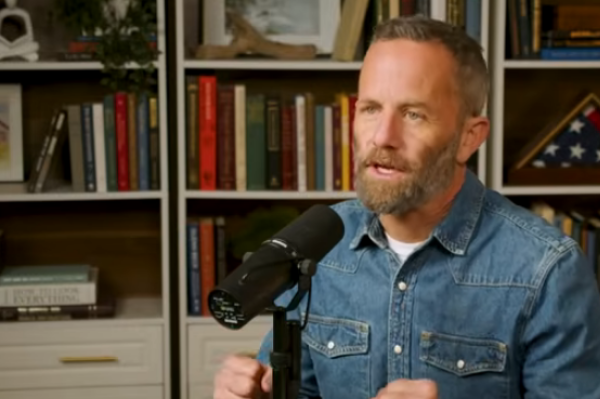How to Harness Millennials for Christ
DALLAS, Texas – Millennials are a passionate, optimistic, global thinking generation of youths capable of transforming the world, declared the head of an organization training emerging leaders.
However, current mission leaders must understand the culture of this generation in order to harness their passion to change the world for Christ.
"The world they are growing up in is fundamentally different than the world we grew up in," said Dr. Tim Elmore, founder and president of Growing Leaders, who spoke on the first evening of a three-day gathering of mission agencies. The Mission Exchange, formerly the Evangelical Fellowship of Mission Agencies, is holding its annual conference Sept. 17-19.
"Yes, in some ways it is the same and salvation, thank God, is still there, but the world culturally speaking is so different," said Elmore, who also helped found the leadership training ministry EQUIP.
He pointed to the generational cultural differences such as the fact that one of the top rappers in the music industry is white, the number one golfer is black, the tallest player in the NBA is Chinese, and Russia and China have lobbied for peace.
"And the French think we're arrogant," joked Elmore to the crowd. "Now this is a whole new world to the one that I grew up in!"
The leadership expert emphasized the need for relevance or using what is cultural to say what is timeless.
Jesus is a prime example of someone who used the agrarian culture of his time to express the timeless truth of God's love, Elmore pointed out.
He used to the acronym EPIC created by theologian and futurist Dr. Leonard Sweet to summarize the generation in terms of how to communicate with them:
Experiential – The generation prefers to be communicated through experiences. They much rather be communicated through videos than simply a lecture.
Participatory – They want to participate in the outcome. That is why reality TV such as American Idol is so popular. Millennials get to vote and decide who stays on the show.
Image rich – They are an image rich generation. A recent survey found that the Millennials watch 35 movies for every 1 book they read.
Connective – This generation is connected relationally and technologically. They like to do thing in a community and stay connected online.
"The one reason why they think they can change the world is because they are already talking to the world," commented Elmore. "They have already been to websites, emails, Facebooks, MySpace and all these other stuff.
"So it's not out of the realm of believability for them because they already talked to people in China and Indonesia," he added.
Connecting to this generation is important because the Millennials make up about half the world's population, pointed out Elmore. The average age in both India and China is mid-20's.
"It's just a very young, young world," emphasized Elmore. "If we are serious about the Great Commission we have to be serious about this generation."
The leadership guru also listed 10 characteristics of the Millennials:
1. They feel special and needed;
2. They love family;
3. They are confident;
4. They are addicted to media;
5. They are team-oriented;
6. They are global;
7. They are pressured;
8. They are harmonious, tolerant;
9. They are generous; and
10. They are optimistic achievers.
"They may be the best educated, best behaved adults, optimistic about the future," said Elmore.
"We will change the world by noon on Friday," he imagined them saying.
"There is a great sense of 'Let's do it' in action and interaction."
Elmore told stories of young Millennials who have taken initiatives to change the world despite their young age.
One story was about a group of elementary students, 10-11 year-olds, in Colorado that was assigned to write a paper on Sudan. After they found out that slave trade was still occurring in Sudan, they push aside their paper and asked what are they going to do about the problem. They went online and found the website of an organization that set slaves free, pooled their allowances together and started to send money to set slaves free in Sudan.
Another story was about some youths from South Carolina who raised and presented a $300,000 check to the Mayor of New York several years ago. The kids had read in their history book that after the civil war the people of New York had given a fire truck to the people of South Carolina thinking that they might need it. The kids thought New York might need a fire truck after 9/11 so they started to fundraise for the gift.
"This is the kind of thinking that they have often times," said Elmore. "I'm saying let's mentor them and unleash them to finish the job (the Great Commission). We may not do it ourselves but we can be the mentors for these kids who could do it."
At the end of the presentation, the leadership training expert used the acronym SUCCESS to advise how to communicate an effective message to Millennials.
Simple – Messages should be reduced to a simple phrase but one big idea.
Unique – The element of surprise will cause the listener to better remember the message.
Concrete – Ideas in terms of concrete actions and tangible outcomes will be most effective.
Credible – The Millennial must perceive the person delivering the message to be credible.
Emotional – Messages need to elicit emotions to gain involvement.
Story - There must be a picture to get the message across.
Satisfying – The message should address the questions 'How does it answer the Great Commission?' and 'How does it answer to the deep human need?'
According to statistics, if the years 1978-2000 are used, as is common in market research, then the size of Generation Y – the Millennials's generation – in the United States is approximately 76 million.





















